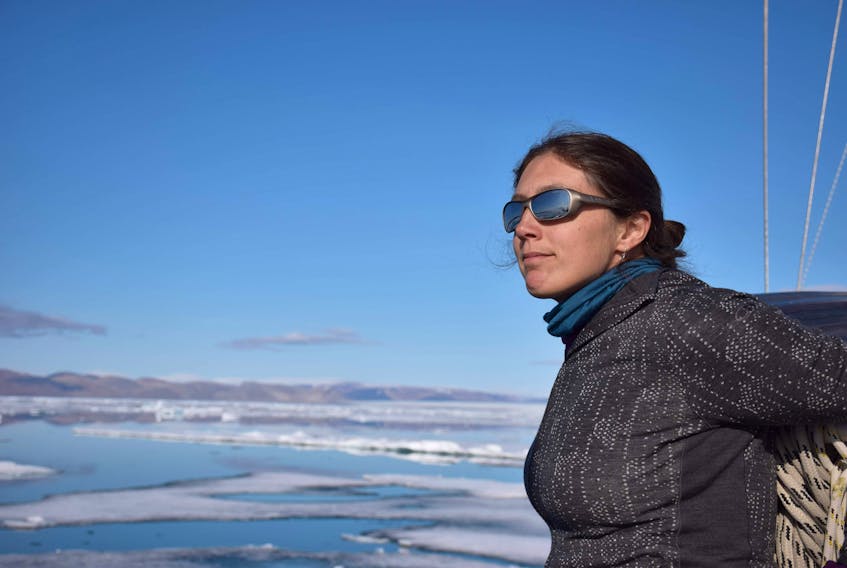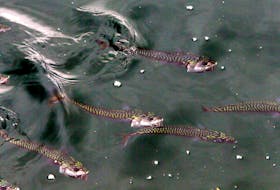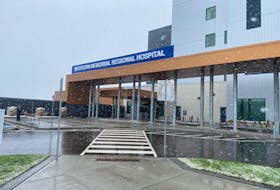A team of researchers from Dalhousie and Memorial universities and collaborators from several disciplines is looking to see how climate change and the ocean's natural carbon pump cycle affect each other.
The project, titled The Northwest Atlantic as a Climate Ocean: Projecting Future Changes in Productivity and the Biological Carbon Pump (NWA BCP), is one of six receiving funding from the Ocean Frontier Institute.
One of the leaders of the project, Erin Bertrand, associate professor on biology at Dalhousie University, said at the heart of it, it's about understanding climate change and its relationship with the ocean. And then working to adapt to that change in a just way.
“There's 18 different researchers that are primary investigators, and then we have 22 collaborators from five different countries, so it's a really big consortium and we're all really excited to be working together on this,” Bertrand said in a telephone interview on Thursday.
“So we're really bringing together oceanographers who have an understanding of how carbon dioxide interacts with the ocean, with people who are interested in governance approaches and policy making and law to try and bring those things together. But at the heart of it, what we want to do is better understand how the ocean is going to respond to rising CO2.”
They're most interested in something called the “biological carbon pump.”
Plankton growing in the ocean take up carbon dioxide from the air and use it to grow through photosynthesis – much like trees on land, Bertrand said.
“They take CO2 out of the atmosphere, they grow with it and they convert it into their bodies, and then that carbon is available for the rest of the food chain. So when larger things eat it, that carbon can get moved into things like fish.”
Then plankton can also sink, moving the carbon from the surface down into the deep ocean. This is accomplished in a number of ways, including in the flesh and fecal matter – poop – of fish.
“That's a really important part of how the ocean helps regulate our atmospheric CO2 concentrations, and we don't really understand as much as we need to about that process in order to predict how it's going to change in the future,” she said.
“So there's lots of different organisms involved with this and things like the temperature in the water, the amount of nutrients available, the amount of light available – all those impact how much these plankton grow and how much of them sink.”
There's also some evidence that climate change has potentially started to decrease the strength of this natural carbon pump, so the project is testing that idea.
“It's a pretty interesting and complex cycle, of course, because this carbon pump can help us combat climate change in some ways by taking CO2 out of the atmosphere and moving it to the deep ocean,” Bertrand said. “But if part of the impacts of climate change are weakening that sinking and that pump, then this could have important consequences that we're not quite sure about yet.”
The preliminary work and computer modelling can go ahead now but the field work – getting out on a researcher cruise – must wait due to the COVID-19 situation, but Bertrand is hopeful those parts will get going soon.
“One of the things I'm really excited about with this project is how inter-disciplinary it is,” Bertrand said. “We're not just working together as ocean scientists trying to understand the carbon pump. Once we have a better sense of the impact of the carbon pump on climate change, we're working closely with people that are experts in responding to climate change in a just way to help improve estimates of the impact of climate change on communities and develop good responses for those communities.”









